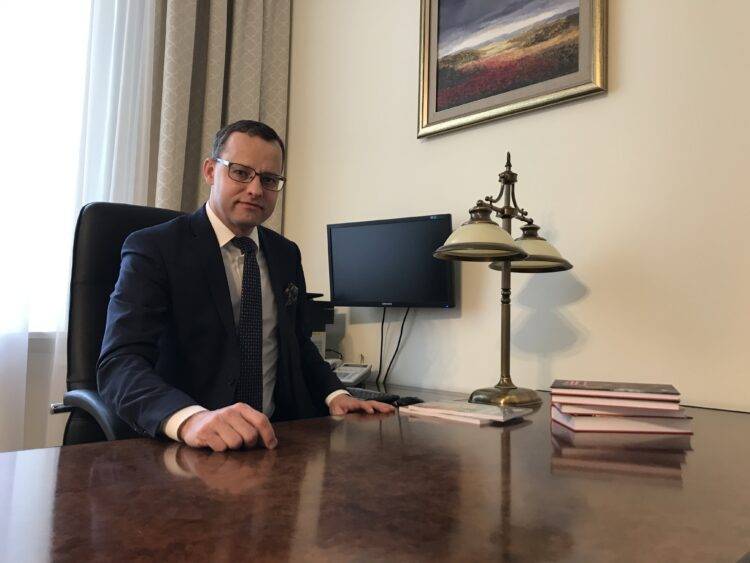Marcin Romanowski, the former Deputy Minister of Justice, was detained on Monday by the Internal Security Agency (ABW) at the behest of the National Prosecutor’s Office. This development is part of an ongoing investigation into alleged irregularities within the Justice Fund.
Romanowski was apprehended at his residence around 15:30 and subsequently transported to the prosecutor’s office, where he is expected to be formally charged. His legal representative, Bartosz Lewandowski, confirmed the detention earlier that afternoon via social media, stating, “ABW is detaining the deputy at the order of the National Prosecutor’s Office.”
Detention Details and Legal Proceedings
Prosecutor’s Office spokesman Przemysław Nowak confirmed Romanowski’s detention, explaining that ABW, collaborating with the National Prosecutor’s Office, executed the arrest as part of their joint investigation. According to Lewandowski, Romanowski is first being taken to the ABW delegation for formalities before being brought to the National Prosecutor’s Office for questioning.
Lewandowski criticized the manner of the detention, describing it as “unlawful” and claiming that it was unnecessary given Romanowski’s willingness to cooperate. “We were at the prosecutor’s office on Friday and left our contact details, stating that Mr. Romanowski would voluntarily appear if summoned,” Lewandowski said, questioning the need for such a dramatic arrest.
Despite the lawyer’s objections, the National Prosecutor’s Office justified the detention due to concerns about potential interference with the investigation. “The necessity of detaining the suspect arises from justified fears of unlawful obstruction of the proceedings and the need for immediate preventive measures,” read a statement from the Prosecutor’s Office.
Charges and Background
Romanowski faces serious allegations, including participating in an organized group aimed at committing property crimes, exceeding his authority, neglecting his duties, and falsifying documents, all resulting in significant damage to state property. The investigation, which targets the mismanagement of the Justice Fund during Romanowski’s tenure from 2019 to 2023, has gathered substantial evidence supporting these charges.
The Sejm, Poland’s lower house of parliament, recently lifted Romanowski’s parliamentary immunity, enabling legal action. This decision followed a June 19 request by the prosecutor to hold Romanowski accountable and authorize his arrest and temporary detention. The necessary documents from the Sejm, crucial for proceeding with the charges, were delivered to the prosecutor’s office on Monday morning.
Political and Legal Repercussions
The case has sparked considerable political and legal discourse. Romanowski, a member of the Sovereign Poland party and associated with the Law and Justice (PiS) parliamentary group, is a prominent figure in Polish politics. His arrest marks a significant escalation in the scrutiny of the Justice Fund, which has been under investigation for some time due to suspected mismanagement and corruption.
The Justice Fund, designed to support victims of crime and improve the justice system, has been under the spotlight for alleged misuse of funds. The investigation covers a broad scope, including the activities of the Ministry of Justice officials responsible for the fund’s management.
As the investigation progresses, Romanowski’s legal team remains adamant about his innocence and the procedural flaws in his detention. The prosecutor’s office, however, stands firm on the necessity and legality of their actions, citing the risk of procedural sabotage as a primary reason for the immediate detention.
Moving Forward
Romanowski’s future now hinges on the forthcoming legal proceedings. If convicted, the implications could be severe, not only for him but potentially for other officials linked to the Justice Fund’s administration. This case continues to unfold, drawing significant public and media attention as it progresses through the judicial system.
As Romanowski prepares to face the charges, the broader implications for Poland’s political and judicial landscape remain to be seen. This high-profile case underscores the ongoing efforts to address corruption and ensure accountability within the government’s ranks.


















